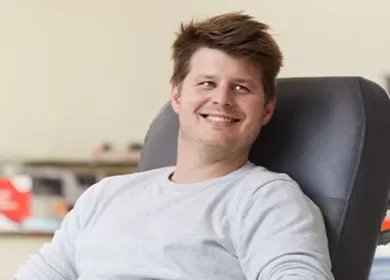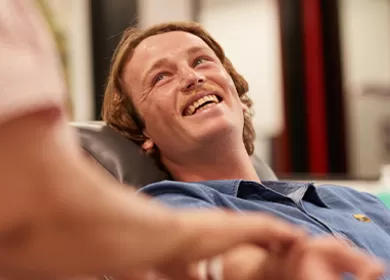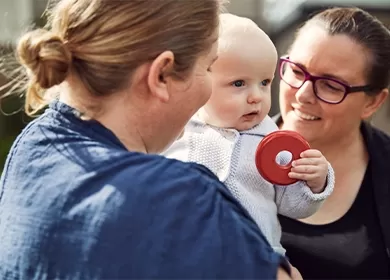Opinion: Australia’s blood donors answer our call for Amira
By Adj. Prof. Stephen Cornelissen AM
CEO Australian Red Cross Lifeblood
A few weeks ago, Lifeblood was asked to fill an order for blood for a very unwell patient in Adelaide awaiting heart surgery. Providing blood for patients in hospitals is a role we do every day, but this order was different. The patient required around 20 units of a blood type so rare just one in 10,000 people had it, yet we needed to find this blood, quickly, her life depended on it.
It was a needle in a haystack situation. Our teams began working around the clock to run additional tests on A or O blood donations looking for a unique combination of blood types to find a match. They also worked with the International Rare Donor Panel which Australia is part of to see if compatible blood could be sourced from overseas. These were crucial steps, but it is the overwhelming community response that will remain with me for many years to come and something I hope continues to resonate with all Australians as the need for blood, plasma and other biological products is something we so desperately need each and every day.
We could not have anticipated the outpouring of goodwill that resulted from our nationwide public appeal for Amira Soliman, a 37-year- old mum of two.
As soon as people began to hear about Amira’s plight through the media and social media, Australia rallied. South Australians, in particular, mobilised in huge numbers. Our donor centres in Adelaide were bustling with people donating blood to help Amira. Some knew her personally, but most did not. Blood donation appointments increased by 100 per cent in one week. We extended opening hours and flew staff in from other states to help meet the demand.
I wholeheartedly thank our regular donors who heard the call and made an appointment, and to those who donated for the first time, thank you for joining this special movement of donors whose life-giving donations have life-changing outcomes for patients across Australia like Amira and their families.
I am thrilled to say we identified more than 20 units of the rare blood needed for Amira. This included two units from donors identified in South Australia.
As a result, Amira has now been able to have life-saving surgery and is making progress in her recovery. All of us at Lifeblood, like all of you who rolled up your sleeves wish her and her family the very best.
What a difference a few weeks can make.
If you heard Amira’s story and donated blood for the first time, I’d like to acknowledge the wonderful step you have taken. I thank you and welcome you to our amazing community of donors.
In South Australia alone, the number of people who donated for the first time was phenomenal. Almost 1000 new donors rolled up a sleeve to in response to the appeal. I now plead with all these new donors to lock in your next appointment to keep giving a life-changing gift. Every year, around 40,000 people nationally donate blood or plasma for the first time, but never return for a second donation, yet every year the need for blood and plasma grows. We at Lifeblood are really trying to turn this statistic around, to show the world what it means to be an Australian or live in this amazing country where we truly and deeply care for each other. So, to all those new donors, please lead the way once again, defy those odds, and become a regular donor. Giving blood takes around an hour of your time, doesn’t cost a thing, and you can save the lives of up to three people with each donation.
One in three of us will need blood in our lifetime. People in my own family have relied on blood and plasma, and I know there are many people across the country whose own loved ones have needed blood during surgery, childbirth, or cancer treatment – they just might not realise that the lifesaving gift that saw them through it was from a generous blood donor. The impact of a blood donation cannot be underestimated. I have spent most of my life working in hospitals and have seen first-hand how these donations change people’s lives. Without them, patients and their families would be faced with very different outcomes.
Amira is just one of thousands of people who need blood and blood products every day. In fact, one blood donation is required every 18 seconds across this country. That means that up to ten donations have been needed whilst you’ve been reading this. So in thanking you for taking the time, can I ask that you also consider becoming a regular donor, and if you can’t donate, you can always spread the word and ask your friends and families to. While Amira’s blood requirements are complex, her story shows that ordinary people can make an extraordinary difference to people’s lives by donating blood and plasma - and we all have a role to play.


